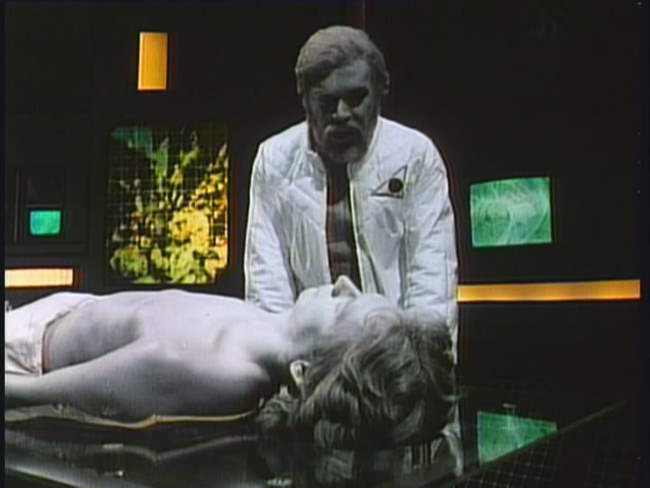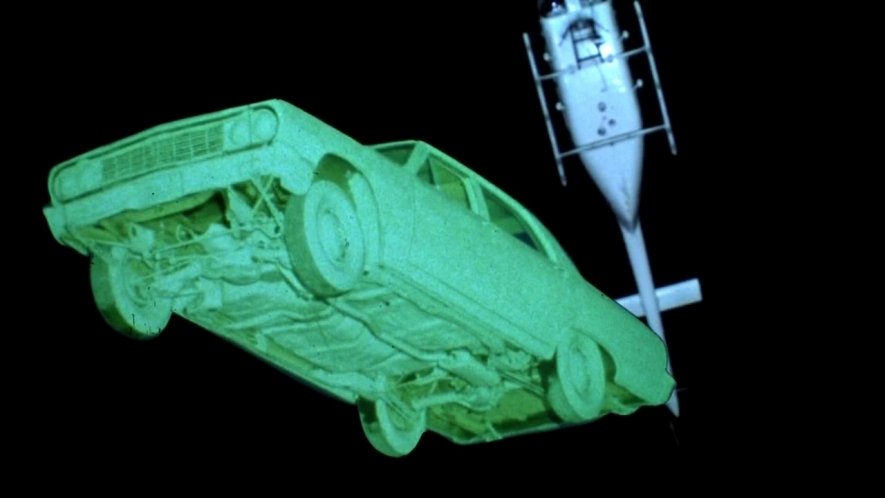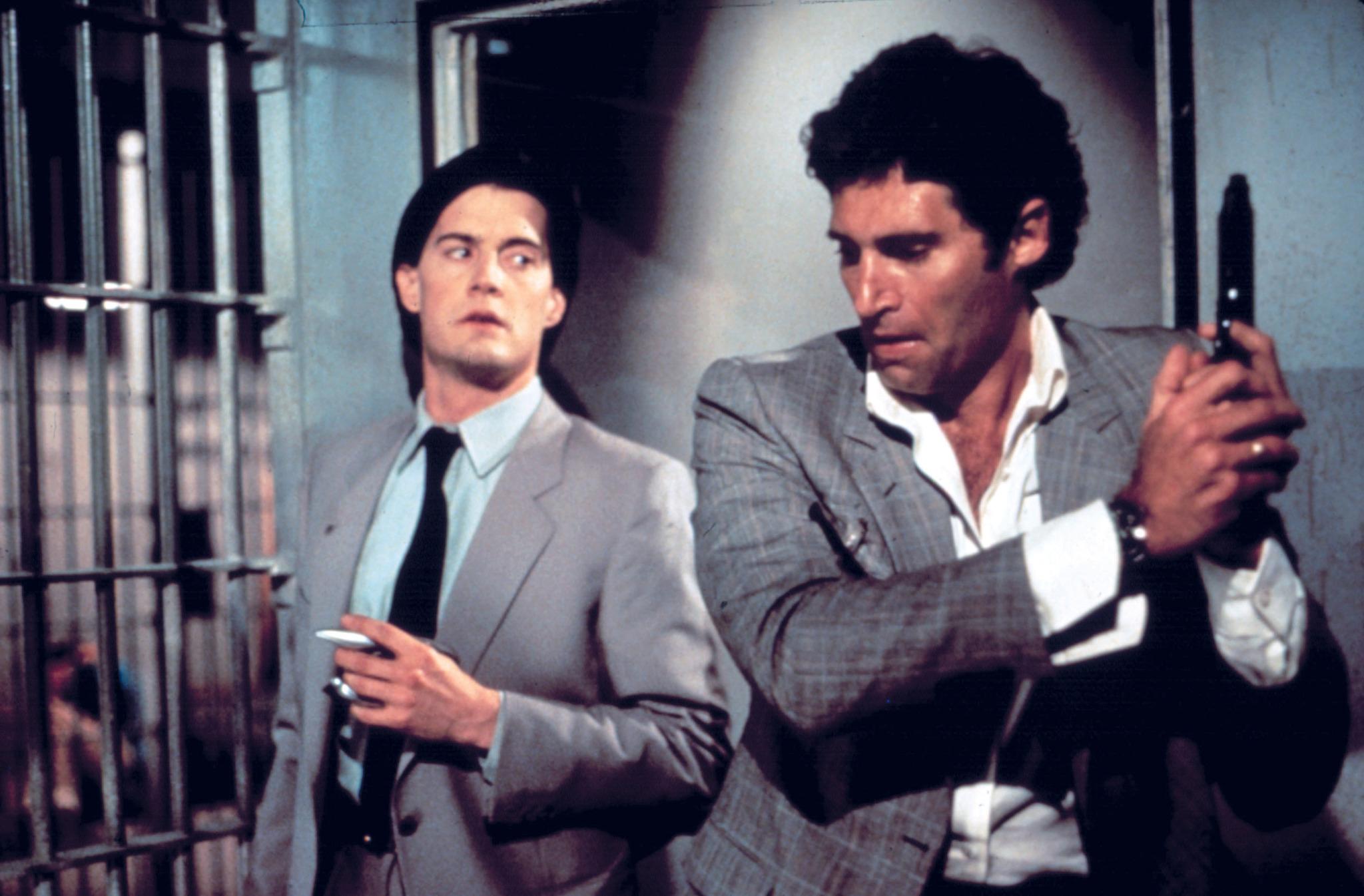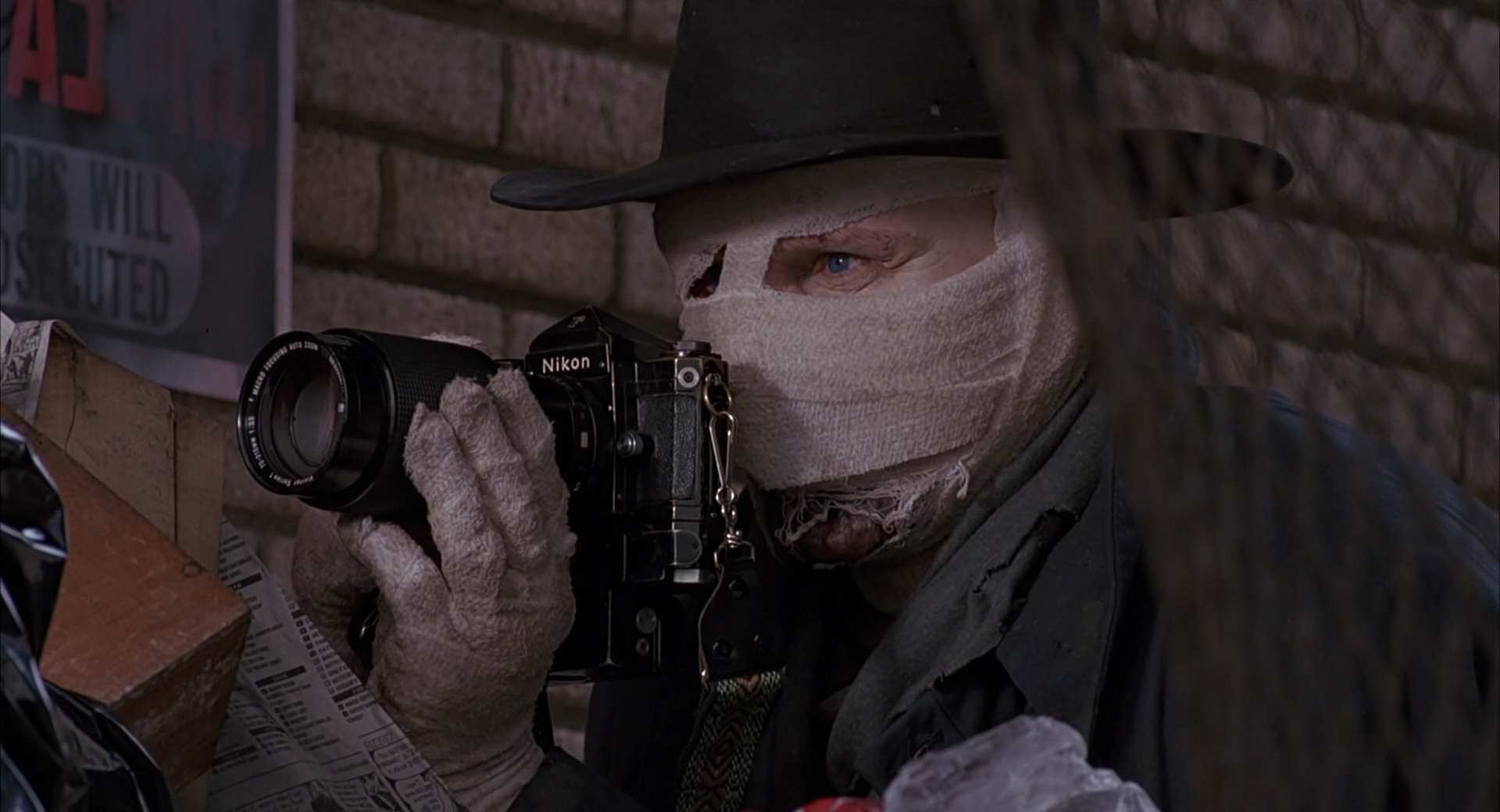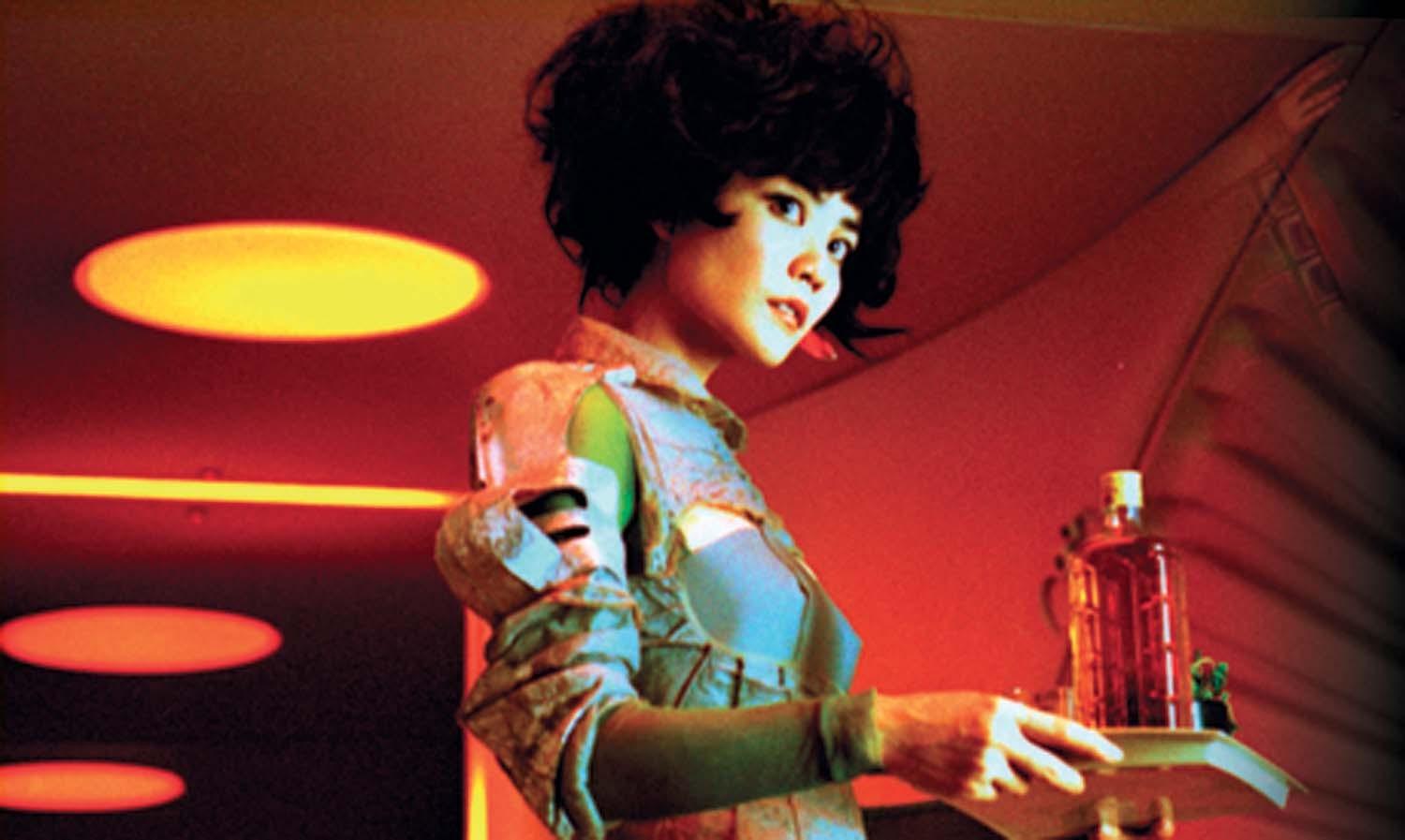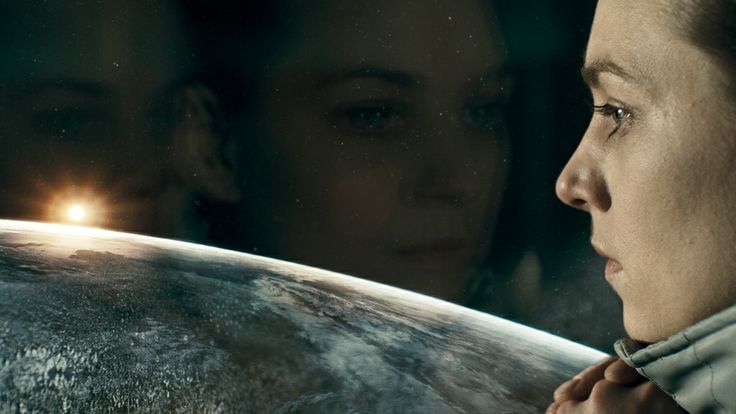14. The Lathe of Heaven (1980)
“I can’t say that life has a purpose. It is. We are. And I want it to stop.”
For any medium to do justice to such profound source material as Ursula K. Le Guin’s Hugo Award nominated novel would be a grand achievement. For a made-for-TV film to do so on a shoestring budget is quite frankly extraordinary. And yet PBS’ criminally infrequently re-broadcasted adaptation does just that and more. It’s greatest merit is that it plucks not just tone and characters off the page and onto the screen but the ideas as well.
George Orr is desperate to rid himself of his dreams which he insists affect reality. He is plagued by guilt having dreamt of his annoying aunt in a fatal car crash only to wake and hear she has died in that very manner. For him it is a curse and yet for his newly appointed oneirologist Dr. Haber it is a gift, a chance to transform the world for the better.
As is understandable due to the resources available to the filmmakers some of the special effects look laughably cheap. However not once does this detract from directorial double team David Loxton and Fred Barzyk’s ability to display wondrous dreams and grandiose ideas through sagacious imagery. The film is equally as personal and intimate as it is epic, a brilliant example of a rare and difficult combination.
15. Trancers (1984)
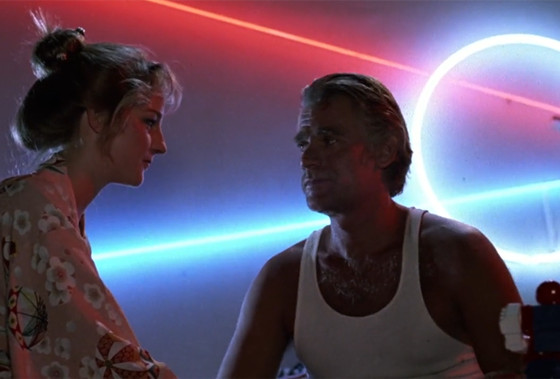
Very few films can get away with opening on a tough guy noir cop called Jack Deth vaporising a member of a zombie cult in 23rd century America with his laser gun and explaining to his superior “I singed one just now and the scorpse is inside.” Yeah, his surname is Deth and he says scorpse.
While the script is on the whole witty and pithy, certain sections of Trancers’ dialogue sound like a thirteen year old Nazi Zombies subreddit moderator gave it a rewrite the day filming began. But when combined with a soundtrack and set designs seemingly inspired by a quattro formaggi, the end product is simply too exaggerated not to like.
After the usual quitting the force then being sucked back in, Deth’s consciousness is transported into the body of a 1985 ancestor with a mission to prevent the murderous leader of the aforementioned cult from assassinating the progenitors of 2247’s governmental council and thus preventing their very existence.
With elements of exploitation cinema, a frankly extraordinary balancing act of sci-fi tropes and admirable though not exactly accomplished performances all round, Trancers is a satisfyingly charming 76 minutes of B-movie glory.
16. Repo Man (1984)
A routine traffic stop ends with a highway patrolman vaporised by a flash of light in the opening scene of Alex Cox’s frantic ode to LA punks. From there things get really weird. Repo Man morphs into a wittily bitter quasi-satire of Reaganomics’ underbelly, played out like a space opera in the gutter.
Atomic scientists, a ’64 Chevy, the CIA, dope beat hippy freaks and a potential alien invasion ensure Emilio Estevez’s Otto is going to have a rough time learning the ropes after he stumbles into a job repossessing people’s cars.
Without wanting to give away any more of madcap plot it’ll have to suffice to say it’s a relentless concoction of exploitation, comedy and sci-fi. Knowingly and cynically staring all the madness straight in the eye is Harry Dean Stanton shining as he always does as a deadbeat outsider. The camera work is succinct; the soundtrack is forever ingrained in countless punks’ teenage canons and its intelligence will surprise you.
17. The Hidden (1987)
Without wasting any time, The Hidden establishes a classic sci-fi set-up and delivers the goods with bravery and a sleek style. An extraterrestrial is inhabiting the bodies of previously law-abiding LA citizens to indulge its most primal desires: to murder innocents, drive Ferraris and listen to eighties’ rock.
Kyle MacLachlan is a clean-cut oddball FBI agent with more than a few similarities to Dale Cooper, arriving in town to work with a local cop to bring down the cosmic killer. Absolutely a film for Twin Peaks fans, this oft-forgotten drama boasts perceptively intelligent lead performances and suave, no-holds-barred direction.
18. Darkman (1990)
Long before the original Spiderman trilogy heralded his meteoric rise and fall in the comic book film industry, Sam Raimi blended Frankenstein, the Shadow and Batman for the flamboyant superhero revenge flick Darkman.
Liam Neeson’s Dr. Peyton Westlake has two things on his mind: researching skin reproduction techniques and charming the socks off his hopefully-soon-to-be-fiancée and hotshot lawyer Julie (Francis McDormand). That is until mobsters hired by one of her less reputable clients leave him horrendously disfigured and out for justice.
At times actors audibly struggle with a script that went through a tortuous rewriting process of around twelve drafts and yet the film maintains a level of ridiculous fun throughout. Much of this is down to the director’s visual bravado, somewhat of a surprise considering it was Raimi’s first work for a Hollywood studio.
In brashly sticking to his guns he shows a commendable cinematographic respect for the medium that inspired his central character, unhesitatingly flashing through the type of ridiculous, goofy and ostentatious imagery that might be found in an Alan Moore one-shot. The final product is a rare treat indeed, a film worthy of the oft-mocked art form of comics.
19. 2046 (2005)
As critics from all over the world were tripping over each other to lavish praise upon the final instalment in Wong Kar-wai’s tangential trilogy, it might seem odd to describe 2046 as overlooked. But the film remains criminally underseen and at the point of its widest release was showing in just 61 venues across the US (by comparison Avengers: Age of Ultron has at the time of writing opened in over four thousand.)
On the surface at least the plot follows Chow, a gossip columnist living in Hong Kong in the mid-sixties. Fragments of story arcs are presented, piecing together his romances and the dystopian future he is creating in his own science-fiction series. But ultimately the narrative is secondary.
To borrow from the late film critic and auteur theorist Andrew Sarris, 2046 can best be described as “quite simply an incomparably sublime work of art, a triumph of lyricism.” The oft-repeated criticism of Kar-wai’s inaccessible structures was inevitably levelled at the film and it would be disingenuous to say that was unjustifiable, but between the simultaneous intensity and serenity of its visuals, this is pure cinema.
20. Cargo (2009)
In 2267 Earth is near-uninhabitable. Its surviving citizens are almost all saving towards a rather expensive ticket to the paradisiacal colony on the green and beautiful but distant planet Rhea. For most it is little more than a pipe dream.
With a sister already there and some savings stashed away Dr. Laura Portmann signs up for an eight year cargo mission transporting machinery across the galaxy aboard the decrepit Kassandra, on the completion of which she plans to buy a one way ticket to the awaiting utopia. As you might expect however, all is definitely not what it seems.
Making his feature film debut director Ivan Engler boasts an impressive visual confidence, contrasting the elegiac movements of his camera to the grotesquery of the industrial dereliction of the cargo ship. This is particularly effective during suspenseful sequences reminiscent of some of the best of sci-fi horror as the crew peel away the layers of a murderous conspiracy.
Part Alien and part Philip K. Dick there’s not much here fans of the genre won’t have seen before. However it is rare to see it done with such effortless aesthetic achievement.
Author Bio: Jamie Lewis is a teacher and wannabe film critic. He collects sunglasses and tweets pictures of people in cars from films. You can follow him on Twitter @jamielewisPM.
